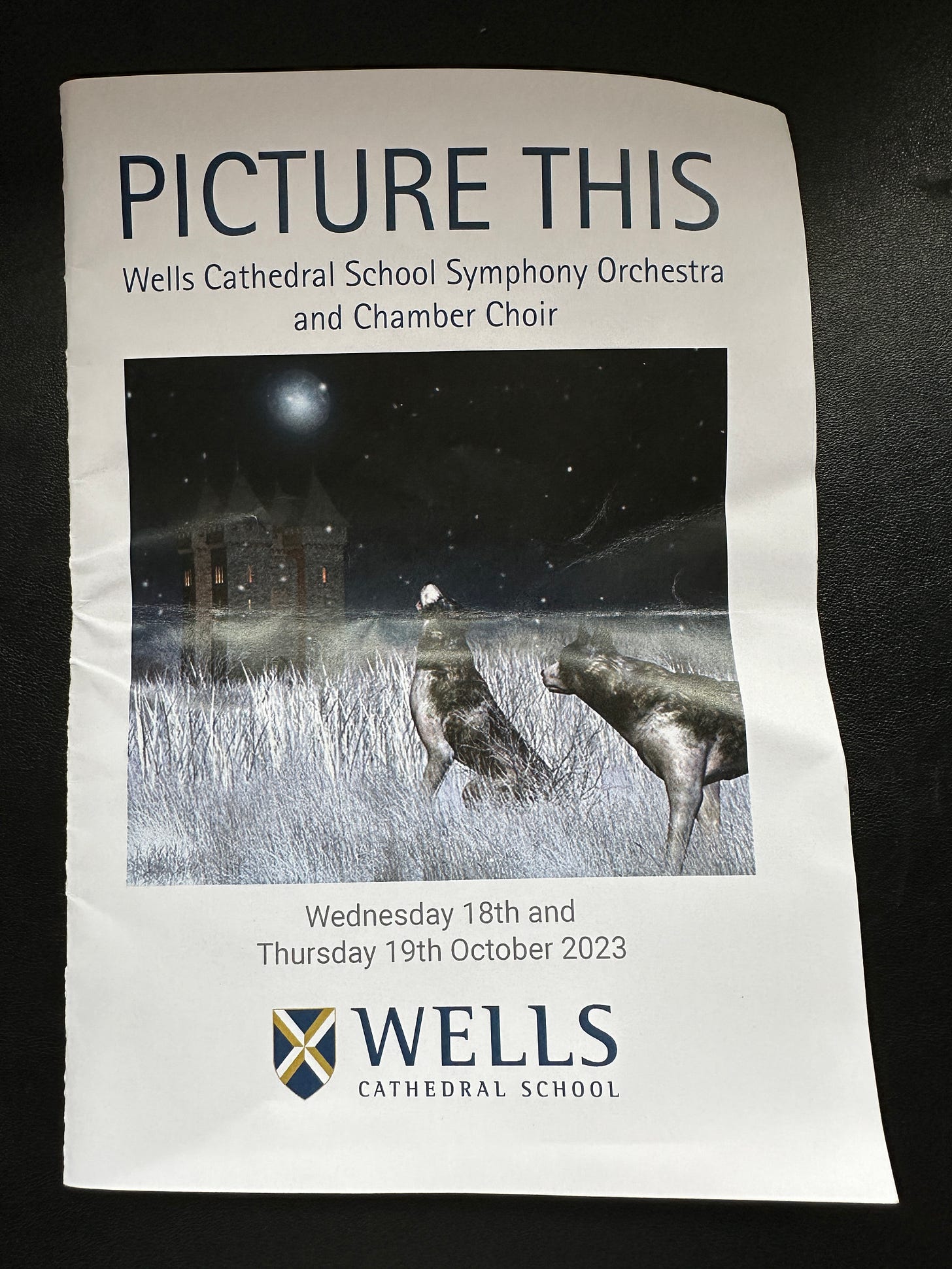What is Economy of Words?
Every word should earn its place.
This week, I had the privilege of attending a remarkable performance by the Wells Cathedral School Orchestra and Chamber Choir, a gathering of about a hundred exceptionally talented musicians and vocalists. These young artists aspire to continue their musical journeys at conservatories and music schools, sometimes even abroad. Amidst this sea of exceptional talent, I couldn't help but reflect on the untapped potential within the school. There exists another group of equally gifted musicians who could also stage an event of similar magnitude.
As I immersed myself in the enchanting melodies of "Peter and the Wolf" and "Tree Shakespeare Songs," it struck me how the concept of the economy of words relates to this musical experience. Just as the school carefully selected the right musicians for this event, songwriters must meticulously choose the perfect words for each song.
Although countless words might fit into a song, the real art lies in selecting the most fitting words that enhance the composition while eliminating any that feel out of place. This is the essence of the economy of words in songwriting.
What is Economy of Words?
Songwriting is a delicate dance of emotions and storytelling, but often, the most powerful songs are those that speak volumes with just a few carefully chosen words. This skill of using an economy of words separates a good lyricist from a great one.
Economy of words is a fundamental concept in songwriting that emphasizes the art of conveying a complex message or emotion using as few words as possible, without sacrificing the depth or power of the message. This technique involves selecting concise, impactful words that are only integral to the song’s theme or narrative.
Crafting lyrics with economy of words allows listeners to connect with the song on a deeper level, as they are more likely to remember and resonate with a song that doesn’t overwhelm them with excessive lines or phrases.
How to Write Using Economy of Words
Here are a few ideas for writing with fewer words –
Start with a Strong Concept: Before diving into the lyric, have a clear concept or story in mind. Economy of words works best when you have a focused theme. This will help you select the most relevant words.
Edit and Revise: Write freely in your first draft, allowing all ideas to flow. Then, go back and ruthlessly edit. Cut out any unnecessary words or phrases that don’t add value. Every word should earn its place in the song.
Every word should earn its place.
Use Imagery and Metaphors: Instead of explicitly stating feelings or ideas, incorporate imagery (click here), and use metaphors or symbolism (click here) to convey the same message more powerfully in fewer words.
Show Don’t Tell: Remember the technique of Show don’t Tell? Well, sometimes allowing the listener to experience the emotions and events of the song for themselves also allows you to say the same thing with few words. Learn more here (click here).
Practice Rhythm and Rhyme: Pay attention to the rhythm and rhyme scheme of the lyric. A well-structured rhyme scheme can help create a sense of cohesion in your song, even with limited words. However, don’t put technicals before the message and art of your lyric.
Final Elimination: Finally, when you’re staring at your final draft lyric, take a moment to spot if there is still there that could be eliminated. There is always a different way to say the same thing, and sometimes cooler than before.
Examples
“Hallelujah” by Leonard Cohen: The song’s opening lines, “Now I’ve heard there was a secret chord / That David played, and it pleased the Lord,” are a masterclass in economy. These lines set a vivid scene with minimal words. (YouTube)
“Yesterday” by The Beatles: The chorus of “Yesterday, all my troubles seemed so far away / Now it looks as though they’re here to stay” succinctly conveys the feeling of nostalgia and longing. (YouTube)
“Imagine” by John Lennon: The entire song is an example of saying a lot with a little. The lines “You may say I’m a dreamer / But I’m not the only one” are both iconic and economically profound. (YouTube)
Economy of words is a vital tool for any songwriter aiming to create emotionally resonant and memorable songs. It’s about capturing the message while eliminating any excess. By adhering to the principles of this art, you can elevate your lyricism and create songs that truly move and inspire your audience.
Questions
Here are a few questions for you –
What is the core emotion or message you want to convey in this song, and how can you express it concisely?
Can you use metaphors, symbolism, or vivid imagery to replace wordy explanations and create a more potent impact?
Have you carefully reviewed your lyrics to eliminate any words or phrases that don’t contribute to the song’s central theme or narrative?
Remember, the magic of music often lies in what’s left unsaid. Embrace the art of economy of words in your songwriting, and you’ll find that less can truly be more.
Hope this helps!
Simon.



